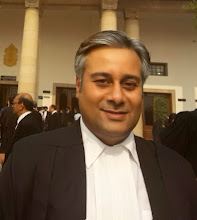Highly Qualified And Earning Wife Not Entitled To Maintenance From Husband: Delhi High Court
The appellant's wife contested the Family Court's Principal Judge's order dated September 3, 2019, which denied her application for maintenance under Section 24 of the Hindu Marriage Act, 1955 (HMA).
A Division Bench comprising Suresh Kumar Kait and Neena Bansal Krishna, JJ., found that the appellant's wife was not only highly qualified and capable of earning a living but was also already earning, though she was reluctant to disclose her income. As a result, the Court dismissed the appeal, stating that someone in her position could not be entitled to maintenance.
Background
The husband, the respondent, filed for divorce under Section 13(1)(ia) of the HMA after the couple, married on April 21, 2014, struggled with compatibility issues and disagreements. At the time, the wife was employed but resigned from her job on May 22, 2015, following the divorce petition's filing. Though the petition was later withdrawn, the marital discord persisted.
In 2016, the wife filed a police complaint, further highlighting the ongoing conflicts. The Family Court revisited the case and noted her professional qualifications and employment history, ultimately denying her pendent lite maintenance. Aggrieved by this decision, the wife appealed, seeking interim maintenance of ₹35,000 per month and litigation expenses of ₹55,000.
Analysis and Judgment
The Court noted that the wife held an M. Phil when she married and had since completed a Ph.D. in management. Additionally, she possessed a professional certification in computers. Conversely, the husband was only a high school graduate. At the time of marriage, the wife earned ₹12,000 per month working at a Diamond Jewellery showroom but later resigned.
The Court emphasized that the wife, despite her claims of sporadic work and charitable activities, had been employed both before and after marriage. It found it hard to believe that someone with her qualifications would not be employed or would work only for charity.
Quoting the Family Court's findings, the Court reiterated that although a person cannot be forced to work merely because they are qualified, in this case, the wife had not only the qualifications but also an established employment history. The Court found no disparity between her earning capacity and her actual earnings.
The Court referred to Mamta Jaiswal v. Rajesh Jaiswal, 2000 SCC OnLine MP 580, where it was observed that Section 24 of the HMA aims to provide financial assistance to a spouse genuinely unable to support themselves despite earnest efforts. The law, however, does not encourage idleness or attempts to extract money from the other party.
The Court also cited Rupali Gupta v. Rajat Gupta, 2016 SCC OnLine Del 5009, where a well-qualified spouse with the ability to earn was denied maintenance under Section 24 of the HMA.
Given that the appellant's wife was highly qualified, capable of earning, and had, in fact, been earning, the Court concluded that she was not entitled to maintenance. The appeal was thus dismissed for lack of merit.
